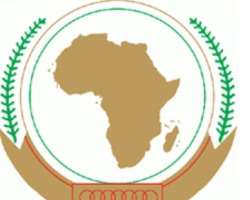The Standard Methods and Procedures in Animal Health Project is Launched during the project's inception workshop / “Livestock development key for economic growth in Africa”

ADDIS ABABA, Ethiopia, August 29, 2012/African Press Organization (APO)/ -- The African Union Commission (AUC) is hosting a workshop to launch the Standard Methods and Procedures in Animal Health (SMP-AH). The workshop scheduled from 27-30 August 2012 is being jointly organized by the African Union Interafrican Bureau for Animal Resources (AU-IBAR), Intergovernmental Authority on Development (IGAD) and the United States Agency for International Development (USAID). The overall objectives of the workshop will be to launch the SMP-AH project, create awareness among stakeholders about the project and provide stakeholders with an opportunity to contribute to the development of the project.
Officially opening the workshop Mrs. Rhoda Peace Tumusiime, Commissioner for Rural Economy and Agriculture at the AU Commission, underlined the significance of agriculture in providing livelihoods for more people than any other sector. “It supports rural economies and is a key driver for food security and poverty reduction. The contribution of livestock to the agricultural capital stock in Africa is enormous and stands at more than 50% and on average, accounts for 30% of agricultural production. About 160million people, mainly small-scale farmers, are engaged in livestock keeping”, she added.
Addressing the issue of transboundary animal diseases (TADs), the Commissioner indicated how they erode the assets of pastoralists, restrict market access for livestock and livestock products and have major impact on livelihoods, household food security and national economies. “Transboundary animal diseases are a shared concern for all the countries particularly in the IGAD region, given the free movement of livestock and livestock products across borders for pasture or trade. Management of these diseases, therefore, requires a coordinated and harmonized approach at regional level”, she emphasized. (The complete speech of the Commissioner is available on www.au.int).
Mr. Jeffery Austin, Sanitary and Phyto-Sanitary Advisor, USAID East Africa, said that the importance of livestock both to the economies and for food security in the region cannot be overstated. The countries in the Horn of Africa are home to estimated 119million cattle, 208.5 million sheep and goats, and 14.3 million camels. “Livestock contributes to over 35% of agricultural GDP in both Kenya and Ethiopia, and $300m in livestock from the Horn are exported annually to the Middle East”, he added.
He underscored the commitment of USAID to support the development of livestock and livestock trade in the region and, “we see the successful implementation of the Standard Methods and Procedures framework as a key achievement…”
In his welcoming remarks Prof. Ahmed Elsawalhy, Director of AU IBAR reiterated the significance of trade relations between the Horn of Africa countries, and the Middle East. Intra-regional cross-border trade of live animals also occurs among the Horn of Africa countries, he observed. He further stressed the challenges which the horn of Africa is facing, and added that most of them hinder the full exploitation of the animal resources. Among the challenges he cited were poor infrastructure, drought, conflicts, animal diseases and low investments by public and private sectors.
The Director urged participants to develop activities that will have real impact on the beneficiaries of the project, particularly the pastoralists. (The complete speech of the Director is available on www.au.int).
The meeting is being attended by AU Commission, USAID, public and private livestock stakeholders, IGAD member states, the Food and Agriculture Organization of the United Nations (FAO), World Organization for Animal Health (OIE), and International Livestock Research Institute (ILRI).
The Standard Methods and Procedures in animal health project (SMP-AH), aims to address the challenges posed by trade-related TADs. It takes into consideration that TADs are a shared concern requiring coordinated and harmonised approaches by the IGAD member states. It is being implemented by the African Union Inter-African Bureau for Animal Resources (AU-IBAR) in partnership with IGAD and with financial support from USAID. The intention of the project is to standardize procedures for detection of and response to specified trade‐significant TADs in order to reduce their impact and promote regional and intraregional trade in livestock and livestock products.
